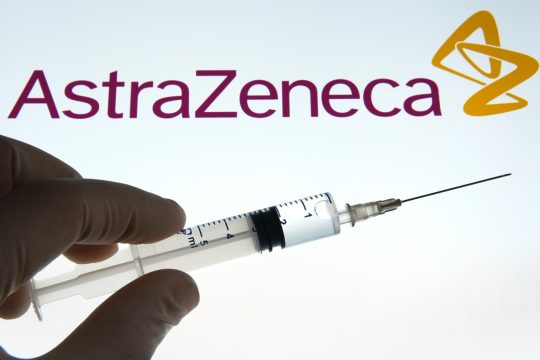Advertisment
ASCO 2013 Report – Radiotherapy and surgery both provide regional control in breast cancer: The AMAROS trial

by Bruce Sylvester – European Organisation for the Research and Treatment of Cancer (EORTC) researchers from the AMAROS (After Mapping of the Axilla: Radiotherapy Or Surgery?) trial reported at ASCO on June 3, 2013 that both axillary lymph node dissection and axillary radiotherapy provide good regional control in breast cancer with a positive sentinel node biopsy result.
They also reported that axillary radiotherapy reduces risk of short term and long-term lymphedema, compared to axillary lymph node dissection.
Asbackground, Prof. Emiel J. Rutgers of The Netherlands Cancer Institute-Antoni Van Leeuwenhoekziekenhuis in Amsterdam, of the EORTC Breast Cancer Group, and a principal investigator, noted that, “Sentinel node biopsy has become the standard procedure for assessing axillary lymph node status for cN0 breast cancer patients. At the start of this trial the question was whether axillary lymph node dissection should remain the standard treatment in case of a tumor positive sentinel node.”
Dr. Geertjan van Tienhoven of the Academisch Medisch Centrum – Universiteit van Amsterdam, another principal investigator on behalf of the EORTC Radiation Oncology Group added, “Although axillary lymph node dissection provides excellent regional control, it was known to cause harmful side effects. Axillary radiotherapy instead of axillary lymph node dissection was hypothesized to provide comparable regional control and perhaps fewer side effects in this particular group of patients.”
Between 2001 to 2010, the researchers enrolled 4,806 subjects diagnosed with invasive breast cancer were in the phase III non-inferiority trial, and randomized them for axillary treatment when the sentinel node biopsy was positive. Also, 3,131 subjects had negative biopsies and 250 patients had a different sentinel node result.
From 1,425 subjects with positive node, the researchers used axillary lymph node dissection in 744 cases, and axillary radiotherapy in 681 cases.
The primary endpoint of the study was rate of 5-year axillary recurrence. At a median follow-up of 6.1 years, this rate was 0.54% (4 out of 744 patients) after axillary lymph node dissection and 1.03% (7 out of 681 patients) after axillary radiotherapy.
The small number of events underpowered the non-inferiority test. Axillary recurrence among subjects with a negative sentinel node biopsy was 0.8% (25 out of 3131 patients).
Secondary endpoints were overall survival, disease-free survival, quality of life, shoulder movement and lymphoedema at years 1and 5.
The investigators reported no statistically significant differences in overall or disease-free survival rates between the two treatments. Estimates of five year overall survival were 93.3% for axillary lymph node dissection and 92.5% for axillary radiotherapy (p=0.34). Disease-free five-year survival estimates were 86.9% for axillary lymph node dissection and 82.6% for axillary radiotherapy (p=0.18).
Lymphoedema appeared significantly more often after axillary lymph node dissection, 40% at year 1 and 28% at year 5, than after axillary radiotherapy, 22% at year 1 and 14% at year 5. (p<0.0001)
The researchers found a non-significant statistical trend towards greater impairment of shoulder movement during the first year after axillary radiotherapy.
The AMAROS trial was conducted in 34 sites located in nine countries: The Netherlands, Italy, United Kingdom, France, Slovenia, Switzerland, Poland, Turkey and Israel. This trial was sponsored by the EORTC and led by the EORTC Breast Cancer Group in collaboration with the EORTC Radiation Oncology Group, the ALMANAC Trialists Group, and the Borstkanker Onderzoeksgroep Nederland with financial support from grants 2U10 CA11488-28 through 5U10 CA011488-38 from the United States National Cancer Institute (Bethesda, MD) and by a donation from the Kankerbestrijding/KWF from the Netherlands through the EORTC Charitable Trust.





